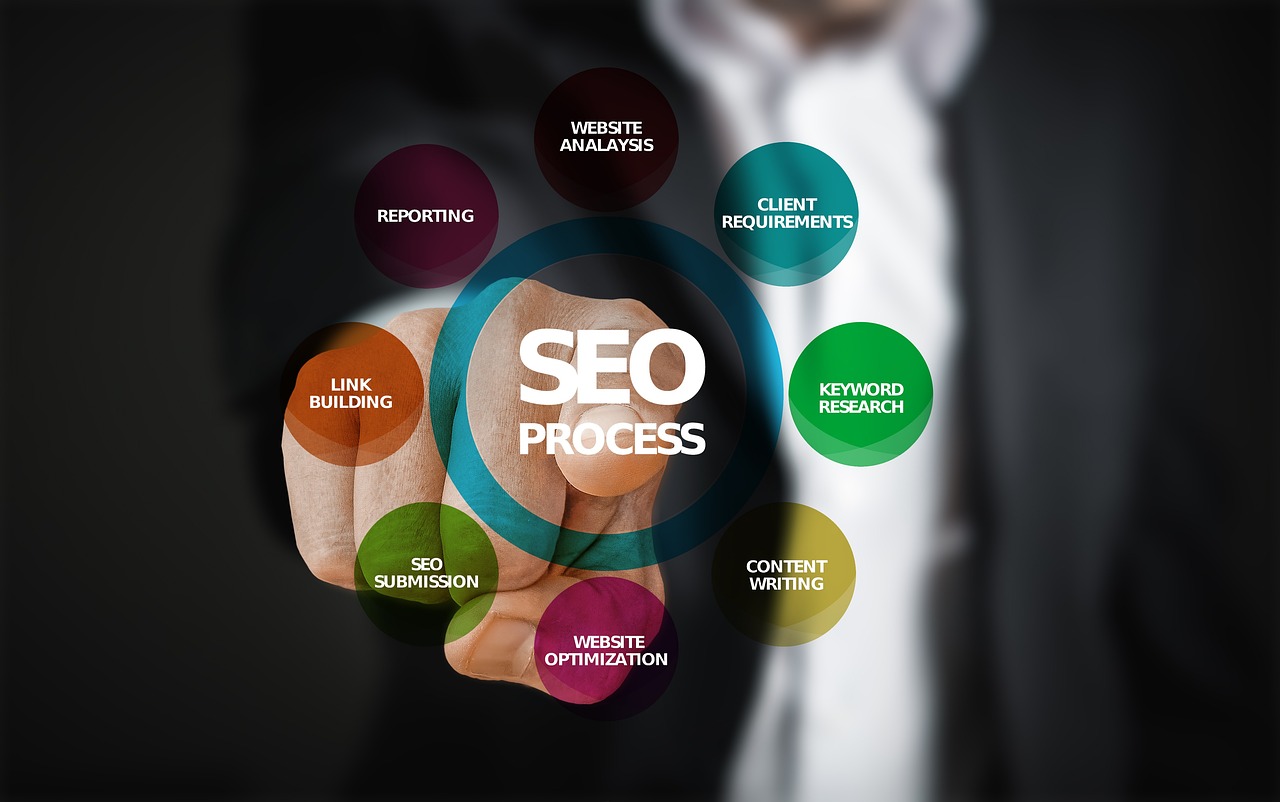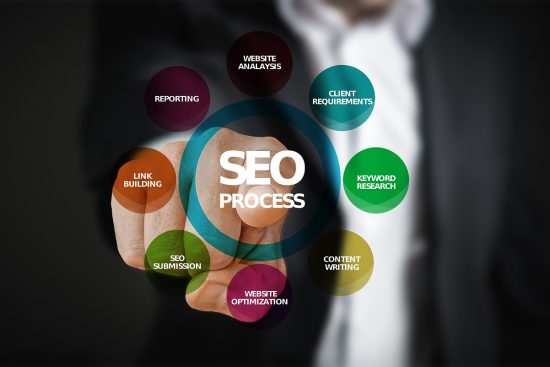Are you tired of watching your marketing budget vanish without much to show for it? Are you tired of wishing your marketing dollar would stretch just that bit further? What if we told you that you could achieve even more with the same budget? Welcome to the era of Strategic Marketing – where every cent counts and every decision has a direct impact. In this blog post, we’ll serve up 10 proven strategies to maximize your ROI and turn your marketing from a cost center into a revenue generator. So why wait for profits when they could be just around the corner? Dive in right away to tap into your business’s unseen potential!

Strategically Allocating Marketing Budget
Budget allocation is critical for any marketing campaign. Without proper allocation, even the most compelling marketing strategy will fall short of its objective. To maximize your ROI in marketing, you must invest your money in precisely the right areas that will return a profit.
Let’s take an example of a business owner who invests a considerable chunk of his budget in a PPC campaign, without realizing that his website has structural issues and takes forever to load. This means potential leads will quickly bounce off his site before it has finished loading and never convert into customers. In such scenarios, even the best PPC campaigns will not be able to make up for the slow site speed.
Marketing budget allocation can be quite subjective, and there is no one-size-fits-all approach to it. Depending on your business type and target audience, different channels may produce better results than others. Moreover, budget allocation isn’t just about selecting the “right” channels; you must also ensure that your spending is focused enough on each medium to produce real results, hence balancing your budget.
To achieve the highest return on investment for each dollar spent, consider investing time in researching where to allocate your resources most efficiently. Data-driven insights can help businesses identify which strategies they should prioritize based on past results. Notably, gathering data becomes much more effective when you have set parameters in place that can be adequately measured and compared over time.
Think of budget allocation as how you decide to distribute your weight evenly while rock climbing at high-altitude peaks. You cannot put all your weight solely on one hand or foot lest it causes dizziness or nausea — instead, you need to balance it out so that all parts of your body are supporting equal weight distribution.
Importance of a Balanced Budget
A balanced budget is critical in any marketing campaign as it prevents you from overspending while focusing on mature and scalable investments that have proven to be profitable. One of the significant benefits of balanced budgeting is cost optimization, i.e., getting the best return for every dollar spent.
There’s no doubt that all businesses want their budgets to go further and generate as much return as possible. A balanced budget ensures that marketing campaigns perform optimally, generating high ROI from both short and long-term strategies. It also means saving money by avoiding overspending on high-cost campaigns with diminishing returns like mass advertising.
For instance, let us say that a fitness center invests exclusively in creating radio ads during peak hours but gets a negligible response from the customers. This would lead to a waste of resources and negatively affect revenue targets. To avoid such mishaps, companies should balance their budget between various mediums rather than investing all resources into specific channels.
Balanced budgeting does not necessarily mean allocating equal amounts across all mediums and channels. Instead, it involves assessing campaigns based on ROI potential and strategically allocating money accordingly. However, this does not mean ignoring small-scale or experimental tactics; instead, businesses should continue to experiment with different techniques in moderation while adjusting budgets accordingly.
Think of a seesaw: if one part has significantly more weight than the other, it will tilt hard towards the weighted side until it is unbalanced and unusable. Balanced budgeting ensures that there’s equal weight on both ends so that everything stays levelled out regardless of how much pressure you put on either end.
Digital Approaches to Yield High ROI
In today’s digital age, businesses need to go beyond traditional marketing tactics and shift their focus to digital approaches that yield high ROI. One of the most effective methods to maximize your ROI is by investing in digital marketing campaigns.
Digital marketing approaches such as email marketing, pay-per-click advertising, and content marketing enable businesses to reach their target audience with greater precision and effectiveness. These digital channels provide a cost-effective means of reaching potential customers while also providing useful insights and data to help fine-tune future campaigns.
For instance, a social media campaign can be targeted specifically to people who have shown interest in your product or industry. This makes it easier for businesses to get their message in front of a receptive audience rather than implementing strategies that don’t necessarily connect with their target market.
Moreover, digital channels allow for real-time monitoring of campaign performance, which can significantly maximize your ROI by optimizing campaigns based on analytics data. By tracking parameters such as click-through rates, open rates, conversion rates, and bounce rates, businesses can adjust ad campaigns in real-time to improve conversions and enhance customer engagement.
Think of digital marketing efforts as an athlete using wearable technology feedback on heart rate, oxygen levels, distance covered and more so that they can maximize their workout. Similarly, the ongoing feedback from digital strategies provides valuable metrics that can be used for enhancing conversions and engagement.
While some may argue that traditional marketing methods such as billboard ads still play a role in reaching audiences, statistics show that consumers are spending more time online than ever before. Therefore, investing resources into digital channels will increase the probability of success.
- Businesses need to focus on digital marketing methods that maximize your ROI by investing in tactics such as email marketing, pay-per-click advertising, and content marketing. These channels allow businesses to reach their target audience precisely while providing valuable insights for future campaigns. Real-time monitoring of campaign performance through analytics data improves conversion rates, engagement, and overall success. Digital marketing also provides ongoing feedback that can be used to enhance conversions and engagement, just like an athlete relying on wearable technology feedback to maximize their workout. With consumers spending more time online, it’s essential for businesses to shift their focus towards digital channels.
Role of SEO in Efficient Marketing
Search Engine Optimization (SEO) is a powerful tool that enables businesses to increase visibility on search engines like Google. A well-planned SEO strategy can help businesses achieve higher rankings on search engine results pages (SERPs). This, in turn, helps businesses to reach their target audience, strengthen brand awareness and drive more traffic to their website.
For instance, a plumbing company based in New York could use SEO to rank higher on Google’s SERPs for “plumbers in New York City”. This would increase the chances of users clicking through to their website from the search engine results page. Moreover, it not only attracts new customers but also provides proof of reliability and authority within the industry.
Providing high-quality content is essential for successful SEO. Consistently producing informative and engaging content leads to high levels of customer engagement. Engaged users tend to stay on websites longer which lowers bounce rates and increases conversions.
The creation of exceptional content is like baking delicious chocolate chip cookies. It takes time and research to compile a winning recipe and once achieved, you still have to consistently duplicate the process to create more mouth-watering cookies that keep your visitors coming back for more.
There are some who argue that SEO is becoming less relevant due to changes with Google’s algorithm updates. However, taking an overly simplified approach or attempting ‘black hat’ techniques is a surefire way to hinder SEO success long-term. Rather than trying to cheat the system, we suggest enhancing what is already there with quality content that engages users.
Effective Social Media Campaigns
Effective social media campaigns can be a game-changer in maximizing your marketing budget thus maximize your ROI. With a robust social media strategy, you can increase your brand’s visibility and reach new potential customers. However, as with any marketing approach, not every social media campaign is created equal. To get the most out of your social media campaigns, here are some strategies to consider:
Firstly, make sure that your content is targeted and tailored to your audience. Every platform has a unique user base, and your content should reflect this. For example, Instagram users are primarily looking for visually appealing content while LinkedIn users tend to prefer more formal, professional material. By customizing your content to the platform and audience, you’ll be able to maximize engagement and conversion rates thus maximize your ROI.
Secondly, utilize social media advertising opportunities. Although it may require an additional investment, it can greatly maximize your ROI of your social media campaigns. Platforms such as Facebook and Instagram offer various ad formats designed for increasing brand awareness or driving conversions depending on what your campaign objectives are.
Thirdly, engage with your audience actively through comments and direct messages. Social media platforms provide businesses with a tremendous opportunity to directly connect with their customers. By being responsive and engaging with them regularly, you can foster goodwill among existing customers and attract potential ones.
Finally, experiment with different post types such as images, videos, stories, or polls to see what resonates most with your followers. Don’t be afraid to try new things periodically because social media trends evolve quickly.
Analyzing Campaign Performance for Future Enhancement
Analyzing campaign performance is vital in optimizing future marketing efforts. Whether you’re doing digital or traditional marketing, knowing which strategies work best will help you refine future campaigns and maximize your ROI. Here’s how:
Firstly, utilize analytical tools to track and analyze campaign data. These tools can give you insight into your audience’s behavior such as engagement rate, click-through rate, bounce rate, or time spent on the website. Moreover, they help you understand how individual campaigns perform at meeting your business objectives.
Secondly, monitor social media mentions regularly. Social media platforms offer a fantastic opportunity to monitor what customers are saying about your brand in real-time. It provides feedback that can be used to modify strategies.
Although feedback from satisfied customers is motivating, negative reviews that highlight pitfalls in your business strategy or customer service should not be disregarded. You can change courses after learning from the constructive criticism by tweaking your service or product offerings as well as resolving customer disputes quickly through more efficient communication channels.
Lastly, try to set benchmarks for future performance by comparing current performance data with past campaigns and industry standards. One way of achieving this is by creating a dashboard that contains key metrics for easy access and that helps identify patterns over time.
By analyzing the performance of your campaign regularly, businesses gain valuable insights that can be used in future campaigns to maximize your ROI on the marketing budget.
Use of Analytics in Performance Evaluation
Analyzing campaign performance is crucial for your business to understand the effectiveness of your marketing strategies and maximize your ROI. This is where analytics come in. Analytics provide data-driven insights into how well your campaigns are performing, which can help you make informed decisions that lead to better results and maximize your ROI.
For instance, by analyzing website traffic data using tools like Google Analytics, you can see which pages on your website are most popular, where your traffic is coming from, and what keywords people are using to find your site. This information can help you optimize your website for better user experience, create targeted content that resonates with your audience, and adjust your SEO strategy accordingly.
Analytics can also be used to evaluate the success of social media campaigns. By tracking key metrics such as engagement rates, click-through rates, and conversion rates, you can measure the impact of your social media posts and identify which type of content resonates best with your audience. This allows you to refine your social media strategy over time to increase engagement and drive conversions.
However, some businesses may feel overwhelmed by the sheer amount of data available through analytics tools. It’s important to focus on the metrics that matter most for your business goals and use them to inform actionable insights. It’s also important to measure the right KPIs (Key Performance Indicators) that best correspond with organizational objectives.
With this understanding of how analytics tools play a critical role in analyzing campaign performance for future enhancement, it’s important now to examine another key aspect of effective marketing strategy: content marketing.
Enhancing Customer Engagement through Content Marketing
Content marketing refers to creating high-quality content that attracts and engages potential customers, rather than directly promoting products or services. By providing value-added information through blogs or infographics or engaging videos, businesses can establish themselves as thought leaders in their industry and build a loyal customer base.
Think about it like this: would you rather buy from a company that constantly bombards you with sales pitches or one that provides educational content that helps you make informed decisions? The latter approach creates trust and establishes your business as an authority in your industry.
A law firm could create a blog series addressing common concerns people have when faced with legal issues, such as “How to Deal with Driving Under the Influence Charges” or “Ways to Protect Your Estate Plan”. Such a series not only attracts potential customers searching for information on these topics, but it also positions the law firm as an expert in these areas, making them more likely to be considered as a trusted legal advisor when the time comes.
Another benefit of content marketing is that it can improve search engine rankings and attract organic traffic to your website. By using relevant keywords in your content and regularly updating your website with fresh content, search engines will take notice and rank you higher for those keywords.
However, it’s important to note that content marketing requires investment in terms of resources, time, and effort for producing high-quality material. It can take some effort to create high-quality content ideas from scratch or it might require outsourcing parts of the work. It’s a long-term strategy intended at building awareness, nurturing engagement through education and creating strong loyalty built on quality interactions with potential customers.
With these points in mind, it’s important for your business looking to maximize your ROI to consider implementing content marketing into your overall marketing strategy alongside other tools like SEO and social media campaigns.




